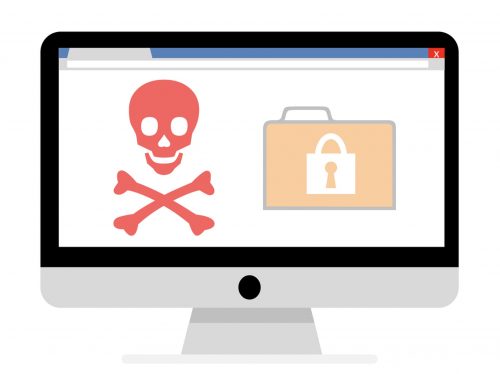
With so many different types of malware out there, malware protection for businesses has never been more important. But what is malware and how can you protect your business from it?
What is Malware?
The word ‘malware’ is an abbreviation that stands for ‘malicious software’. This is a term that covers any kind of software that’s designed to compromise or cause damage to any computer, server, device, or network. That means laptops, tablets, mobile phones, and Internet of Things devices could be targets for this type of software.
Why is malware used? Well, it’s usually about money. Cybercriminals love to steal sensitive data, including financial data, credit card information, and customer details from large companies. Some also search for personal information that they can use for identity theft. Other uses including launching denial of service attacks, taking over computers to mine cryptocurrencies and applying ransomware to force companies to pay out to get their systems and data back.
With so many different types of malware, it’s no wonder that cyber security is ever more important.
What is a Virus and how could it impact your business?
A computer virus is a piece of code or software program that’s been designed to spread from device to device, just like viruses do in the human body. Viruses spread by attaching themselves to documents or programs that support macros. You may have one or more viruses on your computer right now as they lie dormant until you open the infected document or run the program, which then executes the virus.
Some viruses do very little damage, but others are designed to corrupt your hard drive permanently, to erase data, to take over your machine, or to steal your business data. Some viruses can steal passwords, log keystrokes and steal information that cybercriminals can make use of, which can be devastating for any business.
What are Worms and how could they impact your business?
Worms are a type of computer virus, but where a virus needs a user to activate it, a worm can self-replicate and spread automatically via system vulnerabilities.
Worms can do severe damage to businesses, slowing down your network by overloading your web servers and taking up bandwidth to the point that it’s impossible to use your computers. A worm may also have what’s known as a payload attached. This is code designed to perform tasks on every infected computer. The code may be designed to delete your files or steal sensitive data. Code may also allow your computers to be controlled by other computers, spreading spam and performing denial of service attacks.
What are Trojans and how could they impact your business?
While trojans are sometimes referred to as viruses, a trojan is a piece of malicious software or code, rather than a virus, the difference being that a trojan can’t replicate itself.
Designed to look innocuous, like a trusted document, program, or an email attachment, a trojan can have many uses that can seriously affect your business. Once the trojan is downloaded and executed, it can then perform the tasks it was designed to do, which could be anything, including deleting or altering your files, stealing your data or blocking access to it or even disrupting your whole network.
What are Ransomware and Spyware and how could they impact your business?
Ransomware is another type of malicious software that can encrypt your files and leave you unable to access anything on your computers. Imagine being locked out of every piece of data you own and not being able to run your business until you’ve either paid a ransom to get your data back or spent time and money on IT professionals who can retrieve your systems for you.
Spyware, on the other hand, isn’t meant to be noticed. It’s a program installed on your network or computers that is designed to monitor activity and report it back to the person who installed it. Spyware can reveal your browsing history, steal personal information, such as banking logins and other sensitive data, and monitor communications on your devices. This can also be very serious for business, perhaps leading to data breaches of customer information or even industrial espionage.
What are Phishing attacks and how could they impact your business?
A phishing attack is used to steal your data, including credit card numbers and logins. You’ll likely have received a fake email, text or instant message pretending to be from PayPal, Royal Mail, or other trusted companies that’s trying to get you to open it and click on a link or an attachment.
Phishing attacks can lead to serious data breaches, which can lead to loss of reputation, losing customers, reducing investor confidence, and potentially a large fine under GDPR of 4% of your turnover.
How to prevent malware attacks
It’s vital that you hire IT professionals who know how to look after a network with firewalls, antivirus software, email security, software patching, automatic updates, and regular vulnerability assessments. Data should be properly backed up so you can restore it and continue to work in the event of virus damage or a ransomware attack, and systems should be in place to monitor your networks for malware.
Education of your staff is vital, too, including showing them how to spot phishing emails and report them. Teach them not to open unknown attachments, click on unknown links or download apps and programs they aren’t sure of. Forcing the use of strong, unique passwords for every account, that are changed regularly, can also make your systems more secure.
Interesting Related Article: “What is a zombie (computer jargon)? Definition and examples”

